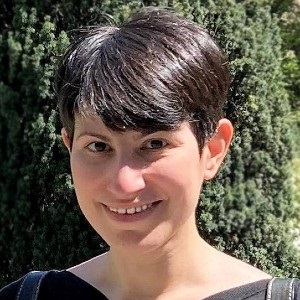Dr Laura Caponetto
BA (Catania), BA (Vincenzo Bellini Music Institute, Catania), MPhil, (Vita-Salute San Raffaele), PhD (Vita-Salute San Raffaele)
Fellow (B), Postgraduate Mentor

College Roles
- Sarah Smithson Research Fellow (B)
- Postgraduate Mentor
Contact
Email: lc882@cam.ac.uk

Biography
Dr Laura Caponetto is a philosopher specialising in philosophy of language, feminist philosophy, and social philosophy. Laura studied Philosophy at the University of Catania and Piano Performance at the V. Bellini Music Institute in Catania, before moving for her MPhil and PhD in Philosophy at Vita-Salute San Raffaele University, Milan. Laura’s doctoral research focused on capturing the ways in which speakers can be wronged in their capacity to do things with words – things such as refusing, testifying, or protesting – and on how social identity can make certain people especially vulnerable to such wrongs.
Laura’s achievements include being named on the 100 Italian women experts in History and Philosophy, 100 donne contro gli stereotipi – a project by Osservatorio di Pavia and Gi.U.Li.A journalists (2021). Laura is also a Founding Member and Treasurer of SWIP Italia (Italian Society for Women in Philosophy).
After holding positions as a Postdoctoral Researcher at San Raffaele University and as an Adjunct Lecturer at the University of Pavia, Laura joined Newnham as the Sarah Smithson Research Fellow in 2022.
Research Interests
Dr Laura Caponetto is currently investigating how words can be used to undo things – to retract promises, withdraw allegations, adjust statements, void marriages. Despite being quite common and of social and political relevance, retractions and other undoing acts have been given almost no attention in philosophy of language circles, and no full theory of what makes them successful has thus far been advanced. Laura’s exploration of the pragmatics of undoing is aimed to remedy this gap. Overall, her doctoral research and current research expand and enrich the theory of speech acts by providing a broad picture of how we do, fail to do, and undo things with words. They also vividly show how conceptual tools from philosophy of language and pragmatics can cast new light on issues of great practical significance.


